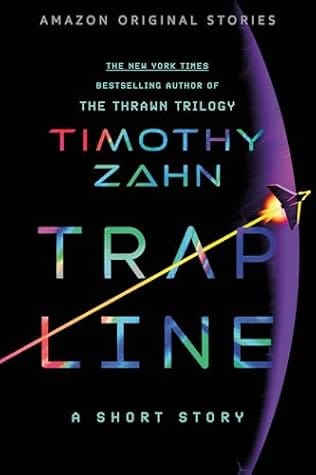John J. Reilly on Joe Haldeman's Forever Peace

John J. Reilly’s review of Joe Haldeman’s Forever Peace [Amazon link] contains a remarkable digression on the economics of abundance. John wrote it twenty two years ago, and if anything it only gets better with age. Read it for yourself.
Then there is the economics of abundance. In Haldeman's nanoforge economy, almost nobody works. Except for college professors and waiters, almost everyone in the advanced countries is content to live on a government stipend. For reasons that are not made altogether clear, the nanoforges are a closely guarded government monopoly. Third World client states are kept in line by the amount of nanoforge production allocated to them, though it might seem to be simpler to just give away the damn nanoforges to whoever wants one.
One of the odd things about the book is that nowhere is there an explanation for the interminable war. What are these people fighting about? If manufacturing labor costs are essentially zero, you cannot even make the Marxist argument that the immiseration of the poor countries is somehow enriching the rich ones. There are no ideological differences; the whole world is socialist, because the economy has become a government utility. Something is wrong with this picture.
The world described in "The Forever War" was also one in which most people did little but consume, since the economy was so automated that it ran itself. Nano-technology really adds nothing to the picture, which I think we can now say is probably wrong. Since Haldeman's earlier book was published, much of the manufacturing economy has been automated, and even what had been skilled clerical work is now handled by computers. The result was a labor shortage, at least in the United States, and a vast increase in living standards in the developing countries. There is a lesson here.
It really is true that technology does not cause unemployment. The assumption that more machines mean fewer jobs is based on an error that is not so different from the notion that the state exists just because there are social classes. Just as Marxists had thought that the end of social classes would cause the state to whither away, so technological pessimists thought that everyone would go on welfare as soon as "no one had to work for a living." In both cases, the assumption is that politics and economics are essentially utilitarian institutions.
This is pretty clearly not the case. As anyone who has been to high school can tell you, political activity is not something that people do just to ensure the necessities of life. People do politics for prestige, for fun, even when there is no particular need. The state is just another way that human beings interact. The same is true of economic activity. As Aristotle famously put it, man is a political animal, but he is also an economic one. People will trade and dicker and build better mousetraps even when they are already materially secure for life.
Would it really make such a difference if all manufacturing jobs were automated? The proportion of people in advanced countries who have such jobs is what, 25%? For most of history, 90% or more of people worked in agriculture. That is why, in political philosophy from Confucius to the physiocrats, only peasants were held to do any real work. Today, in the US, only 1% of the people are actually farmers. By historical measures, everybody else is out of a job.
One way to put it is that economics need not be about things. It can be about access to certain people or places, or about time, or about anything you please. The human capacity to make work is probably more inexhaustible than the universe's ability to provide power for the physical aspects of the activities in question.
Copyright © 1998 by John J. Reilly



Comments ()